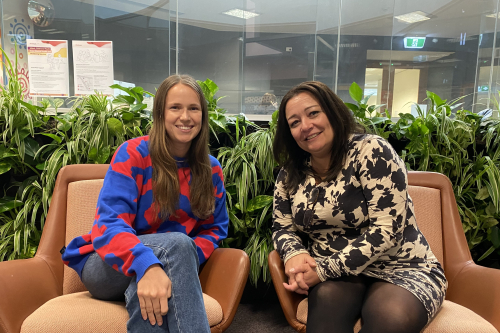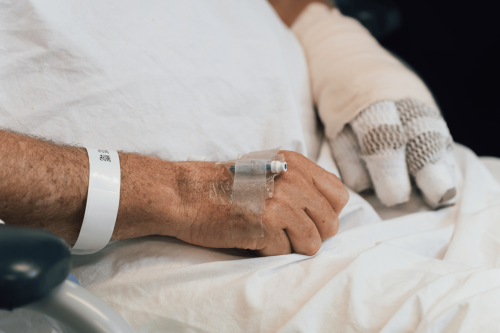Teamwork to improve stroke care
Nurses are leading the way in a new Alfred study aimed at improving outcomes for stroke patients.
Nurse educator Danny Kinsella says The Alfred's Triage, Treatment, and Transfer in Stroke Trial (t3) trial hopes to build on the success of a 2011 study, which had success in using three main interventions.
In collaboration with chief investigator Professor Mark Fitzgerald, Director Trauma Service and Associate Professor Biswadev Mitra, Director or Emergency Medicine Research, the multidisciplinary study will be led by nurses and aims to provide acute stroke patients better health status, independence and quality of life.
"The three clinical protocols - of "Triage, Treatment and Transfer" - look at more effective and efficient management of fever, abnormal blood sugar and early detection of impaired swallowing following acute stroke ," Mr Kinsella explained.
A/Prof Mitra explained that interventions will start with strategies focused towards faster assessment of acute stroke patients on presentation to the ED.
"Protocols will then be put in place for management of fever, abnormal blood sugar levels and assessment of swallowing before allowing oral intake," he said.
Senior stroke physician Dr Jorge Zavala says results from an earlier trial showed that patients who received the interventions in stroke units were 16 per cent more likely to be alive and independent at 90 days following their stroke.
"These patients also had fewer episodes of fever, lower mean temperatures, lower mean blood glucose levels, and better screening for swallowing difficulties. We're hopeful that we'll have similar striking results by starting the interventions in ED," Dr Zavala said.
Nurses have been involved in workshops, identified "clinical champions", undertaken interactive education, developed hospital guidelines and communication materials to raise awareness of the project.
The Alfred is one of 28 centres involved in the trial nationally.



_500_333.jpg)